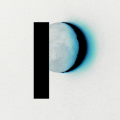Member-only story
Google’s Quantum Computer Is About 158 Million Times Faster Than the World’s Fastest Supercomputer
In 2019, Google’s quantum computer did a calculation in less than four minutes that would take the world’s most powerful computer 10,000 years to do. It is the seed for the world’s first fully functional quantum computer that can make better medicines, create smarter artificial intelligence and solve great riddles of the cosmos.
In 2012, theoretical physicist John Preskill came up with a formulation of quantum supremacy, the superiority of quantum computers. He named it the moment when quantum computers can do things that are not possible for ordinary computers.
Seven years later, in autumn 2019, Googles quantum computer Sycamore reached this milestone. In 200 seconds, the machine performed a mathematically designed calculation so complex that it would take the world’s most powerful supercomputer, IBM’s Summit, 10,000 years to do it. This makes Google's quantum computer about 158 million times faster than the world’s fastest supercomputer.
The quantum computer uses the rules of quantum mechanics to perform calculations beyond human comprehension. Quantum mechanics is a branch of physics that deals with photons, electrons and atomic nuclei.
These smallest building blocks of the universe behave completely illogically. For example, the states of two particles can be connected, even though they are a long way apart, and one particle can be in two places at the same time.
By mimicking the complex chemical and physical processes of nature at the atomic level, the quantum computer can help develop new medicines and invent superconducting materials that conduct electricity without loss of energy, for example.
But to start a new scientific golden age, the researchers behind the new technology still have a few hurdles to overcome.
Qubits can be everywhere at once
The computing power of the quantum computer comes from so-called quantum bits, abbreviated to qubits. On an ordinary computer, data is stored as bits with a value of 0 or 1. Four classical bits can together create 16 different data…

